Cooking or baking gluten-free food means ensuring all your ingredients are gluten-free. Coeliac UK’s Norma McGough gives some helpful tips for stocking your kitchen cupboard…
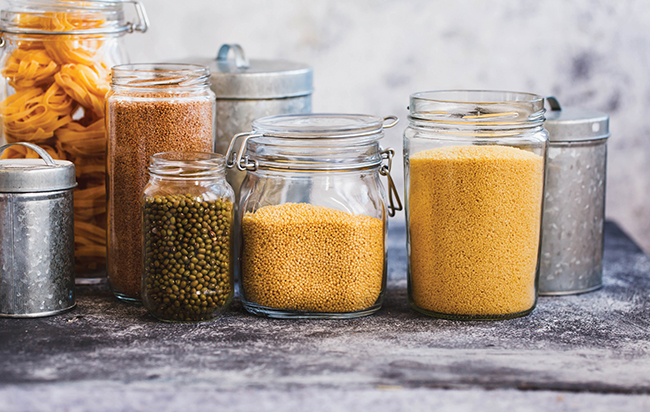
Q) What gluten free grains and flours can I stock?
A) Always make sure you choose flours and any other products made from flour such as pasta, cakes, biscuits, crackers and breakfast cereals that are labelled gluten-free. There are a range of ‘naturally’ gluten-free grains and flours such as amaranth, buckwheat, chestnut, cornmeal, polenta, millet, oats, quinoa, rice, sago, sorghum, soya, tapioca and teff. However, where naturally gluten-free flours are milled or processed alongside gluten containing flours like wheat, there is a risk of cross-contamination with gluten, so specially produced and labelled ‘gluten-free’ flours and grains are a must.
Q) What about noodles?
A) Noodles can be made from wheat, barley, buckwheat, rice or a combination of these grains, so check that rice noodles are labelled gluten-free before you buy them.
Q) Are herbs and spices gluten-free?
A) Individual herbs and spices are naturally gluten-free. You will need to check blended and powdered seasonings or mixes. Check the product’s label if unsure.
Q) Are dried pulses gluten-free?
A) Peas, beans and lentils are naturally gluten-free. However, pearl barley contains gluten.
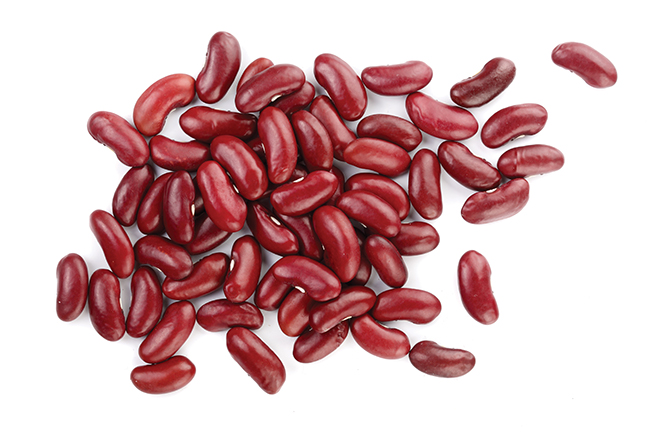
Q) Is soy sauce gluten-free?
A) Soy sauce can be made with wheat or barley, making it unsuitable for people with coeliac disease. Gluten-free versions are available in the free-from section of most major supermarkets. There are also some types of tamari (Japanese) soy sauce that are made without wheat or barley and are therefore suitable. If wheat flour is included as an ingredient, this must be listed and emphasised in the ingredients list.
Q) Is mustard gluten-free?
A) Mustard seeds, mustard flour and mustard powder are gluten-free, and there are a number of mustards that are made without gluten. English mustard traditionally contains wheat flour, but if it is in a prepared mustard product, it must be declared in the ingredients list in line with European Union (EU) wide food labelling law. For more information on food labelling, visit Coeliac UK’s website at www.coeliac.org.uk/labels
Q) Which cereals and grains contain gluten?
A) Wheat, barley and rye are the main gluten-containing grains, but also look out for other forms of wheat: bulgar wheat, couscous, dinkel, durum wheat, einkorn, emmer wheat, Farro, Khorasan wheat (commercially known as Kamut), semolina, spelt and triticale.
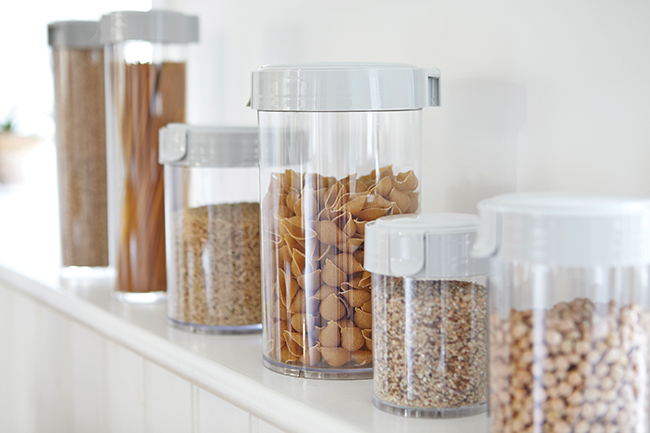
Q) Is Worcester sauce, vinegar and pickled products gluten-free?
A) Worcester sauce can be included in a gluten-free diet. The main ingredient in Worcester sauce is barley malt vinegar – which is made from barley – but as it is made using a fermentation process, the amount of barley (and gluten) in the end product is extremely small and is well below a level which is safe for people with coeliac disease. Barley malt vinegar is also found in pickles, chutneys and some sauces. If it is used in a food product the manufacturer must list the word ‘barley’ and emphasise it in the ingredients list in line with European Union (EU) wide food labelling law.
The amount of barley, and therefore gluten, in the end product is extremely small and is well below a level which is safe for people with coeliac disease due to the processing involved in producing it. In addition, barley malt vinegar is usually only eaten in small amounts, for example, drained pickled vegetables, sauces with a meal or on chips. Balsamic, cider, sherry, spirit, white wine and red wine vinegar are not made from barley and can also be included in your gluten-free diet.
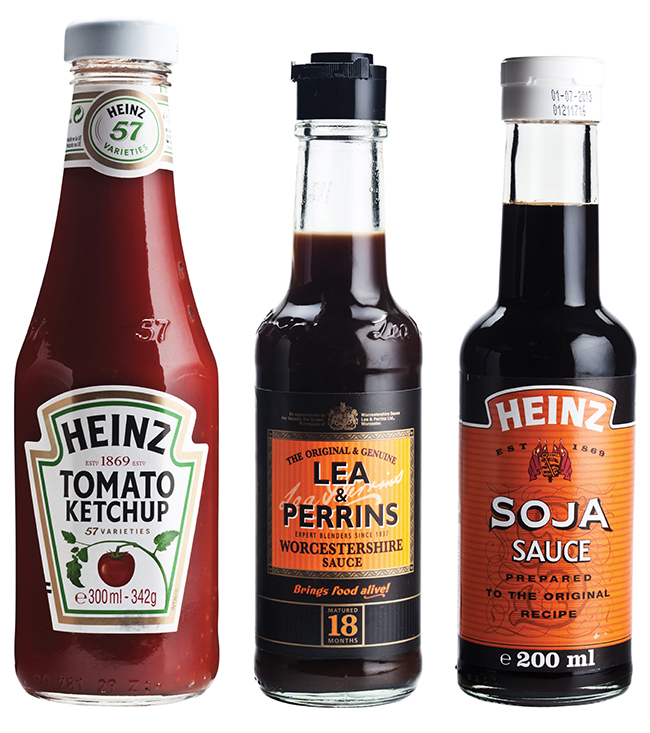
Q) What products can be labelled gluten-free?
A) Only foods that contain 20 ppm (parts per million) or less can be labelled as ‘gluten-free’. The term can be used on specialist substitute gluten-free products like breads, flours and crackers, which may contain gluten free (Codex) wheat starch, as well as processed foods made from naturally gluten-free ingredients like soups, ready meals and snacks. The gluten-free label may also be used for uncontaminated oat products. For oat products labelled gluten-free the oats themselves must also contain no more than 20 ppm.
For more information on food labelling visit Coeliac UK’s website at www.coeliac.org.uk/labels
Coeliac UK
Coeliac UK are the trusted organisation for anyone living gluten-free. Their services will help you shop, cook, travel and eat out with confidence. For just £2 a month (discounts available) you get personalised support, advice from their dietitians and information on venues, recipes and the product suitability of over 100,000 gluten-free and mainstream products to support your diet.

Join today to live well gluten-free. Visit www.coeliac.org.uk/join or call 0333 332 2033.
If you have any more questions about your diet, check out the Coeliac UK website at www.coeliac.org.uk, which is full of evidence-based information and handy tips for living well gluten-free. Or email one of their dietitians with your query at dietitian@coeliac.org.uk.
Norma McGough
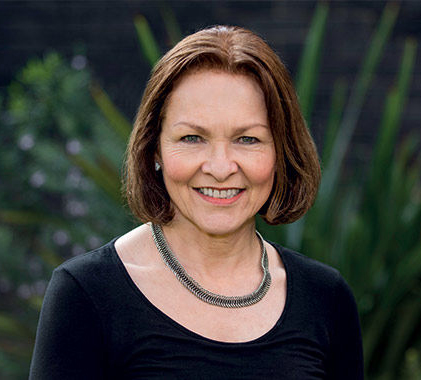 Norma began her career as a registered dietitian in the National Health Service. In the last 20 years she has worked in the voluntary sector, heading teams at both Diabetes UK and Coeliac UK. Norma has been working at Coeliac UK since 2003 and is currently Director of Policy, Research and Campaigns.
Norma began her career as a registered dietitian in the National Health Service. In the last 20 years she has worked in the voluntary sector, heading teams at both Diabetes UK and Coeliac UK. Norma has been working at Coeliac UK since 2003 and is currently Director of Policy, Research and Campaigns.
